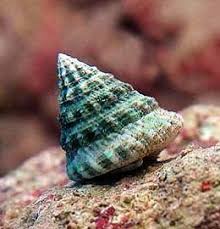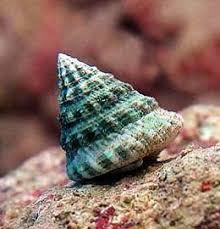Pyramid snail
Pyramid snail
check_circle Fast Shipping
check_circle Quality Products
check_circle Affordable Price
Reach out to us on ''available to order'' items via WhatsApp or email
Low stock: 9 left
Couldn't load pickup availability

Pyramid snail
package_2
Product Description
Product Description
What are Pyramid Snails?
“Pyramid snail” is a name that gets used for a few different types of marine snails, often in the Trochus / Tectus / Turban families (sometimes called “top snails,” “trochus snails,” “turban snails,” etc.). They have a conical or pyramid-shaped shell and usually graze algae. Sea View World Aquatics+3Africa Sealife Aquarium+3The Reef Experience+3
However — there are also some “pyramid snail” types that act more like pests (boring into shells or harming clams). So you’ll want to correctly identify which kind you have. Reddit+1
🌿 Desirable Pyramid Snails (Good “Clean‑Up” Types)
These are the ones people generally want in a reef tank, for managing algae and helping keep surfaces clean.
Key traits:
-
Grazes on algae, film algae, diatoms, biofilm on live rock/glass. aquariumdomain.com+2The Reef Experience+2
-
Hard shell, usually conical with ridges or patterning of colors like brown, tan, sometimes banded. Africa Sealife Aquarium+2Harry's Marine Life+2
-
Reef safe (won’t bother corals, no venom, not aggressive). Harry's Marine Life+1
Care Tips for these good types:
| Parameter | Suggestion |
|---|---|
| Tank Size | Moderately sized reef/ marine tank. Some species are small; bigger ones need more space. The Reef Experience+1 |
| Substrate & Environment | Live rock for grazing surfaces, crevices to hide, stable water. |
| Water Quality | Stable salinity (around 1.023–1.025), pH ~8.1‑8.4, clean water. High nitrates/copper bad. aquariumdomain.com+1 |
| Diet | Mostly algae; supplement with dried seaweed or algae wafers if needed. aquariumdomain.com+1 |
| Shell Health | Needs good calcium and stable water so shell stays strong. |
⚠️ When Pyramid Snails Are Pests / Problematic
Some pyramid/snail‑looking animals are not the harmless kind. They can bore into shells of clams, live rock, or even attack other mollusks. People often spot them late because they come in via live rock or hitchhiking fragments. Reddit+1
Signs they might be a pest:
-
Found boring into clam mantles or inside the shells of live corals or other snails. Reddit+1
-
Appear on the underside of shells, not just grazing on algae.
-
Population seems to grow even without obvious food sources (they might be feeding on creatures and tissue).
If you have clams or delicate mollusks, these pests can cause serious damage.
🛠 What to Do If You Have Them
Here are friendly, practical options depending on whether you want them or need to remove them:
-
If they’re the good kind, keep them in a healthy, established tank with lots of algae. They’ll help. Make sure shell health is good (calcium, stable water).
-
If you suspect a harmful type:
-
Manual removal when you see them (scrub them off shells, remove from clams).
-
Quarantine or dip rocks/frags before adding them to prevent hitchhikers.
-
Ensure good predators (some wrasses or fish that pick snails) if compatible.
-
Avoid copper-based meds (they often kill snails indiscriminately).
-


